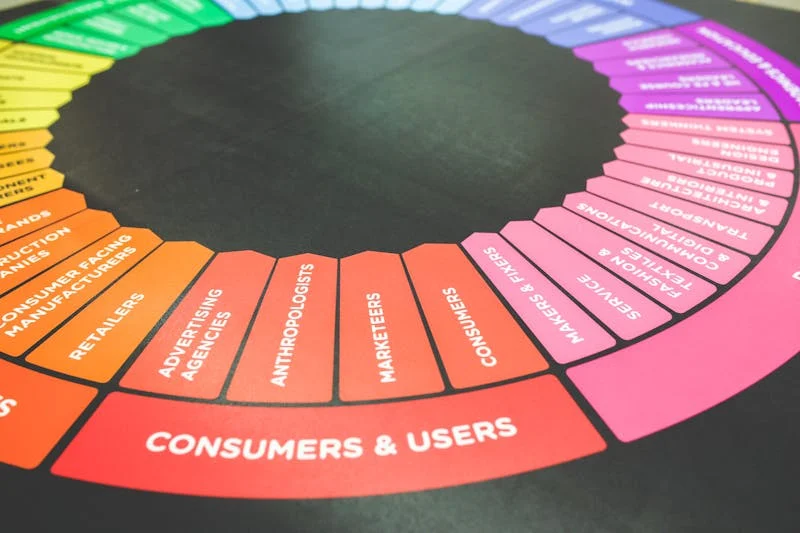Ethical neuromarketing is emerging as a powerful yet contentious tool, in today’s quickly changing marketing world and it’s challenging businesses to strike a delicate balance between innovation and consumer trust. As I take you on a deep dive into this concept, you’ll discover how ethical neuromarketing is reshaping the marketing industry and why it’s crucial for brands to embrace responsible practices in their pursuit of consumer insights.
The Rise of Ethical Neuromarketing: A Game-Changer in Consumer Understanding
Ethical neuromarketing represents a revolutionary approach to understanding consumer behaviour, blending cutting-edge neuroscience with traditional marketing techniques. By analysing brain activity and emotional responses, marketers can gain unprecedented insights into the subconscious drivers of consumer decision-making. However, this powerful capability comes with a significant responsibility to protect consumer rights and privacy.
As a marketing professional with over two decades of experience in consumer behaviour analysis, I’ve witnessed firsthand the transformative potential of neuromarketing. Yet, I’ve also seen the ethical pitfalls that can arise when this technology is misused. It’s this duality that makes fully understanding the implications of ethical neuromarketing not just important, but essential in today’s marketing ecosystem.
The growing interest in neuromarketing reflects its potential to unlock insights into subconscious decision-making processes that traditional marketing methods often overlook. For instance, brands like Fanta have utilised neuromarketing techniques to understand how different colours and packaging designs affect consumer perception and choice. This approach has allowed them to refine their product designs to better resonate with their target audience.
However, the ethical implications of these practices must be kept front of mind. The influence that neuromarketing can have on consumer perceptions and behaviour is significant, and it’s crucial that this power is wielded responsibly. By prioritising ethical considerations, marketers can ensure a transparent relationship with consumers, thereby maintaining brand trust and loyalty.
Defining Ethical Neuromarketing: More Than Just Brain Scans
At its core, ethical neuromarketing needs to be about respect and transparency. It’s the application of neuroscientific tools to marketing research, conducted with full disclosure and informed consent from participants. it’s an approach goes beyond simply using brain imaging technologies; as it encompasses a holistic view of consumer engagement that needs to prioritise consumer considerations at every step.
Ethical neuromarketing refers to the application of neuroscience tools to gauge customer responses, but without infringing on their rights or autonomy. An ethical approach emphasises the importance of informed consent and transparency in research practices, ensuring that consumers are aware of how their data will be used. For example, a company might use brain imaging technologies like fMRI to assess emotional responses to advertisements, but it must first obtain consent from participants and clarify the research’s intent.
Organisations like the Neuromarketing Science and Business Association (NMSBA) have been pioneers in establishing ethical guidelines for the industry, developing frameworks to ensure that neuromarketing research is conducted responsibly, with a focus on consumer protection and scientific integrity. For example, these guidelines emphasise the necessity of a thorough debriefing process to explain the implications of participation and the intended use of collected data.
The Ethical Imperative: Why It Matters More Than Ever
In an era of increasing consumer scepticism and data privacy concerns, the importance of ethical marketing practices can’t be overstated. Brands that demonstrate high ethics and transparency are more likely to build lasting trust with their audience, leading to enhanced brand loyalty and customer retention.
Consider the case of Unilever, a company that has successfully integrated ethical neuromarketing into its product development and marketing strategies. By transparently communicating their research methods and prioritising consumer well-being, Unilever has not only improved its products but also strengthened its brand reputation and market position.
Incorporating ethical marketing practices goes a long way to building consumer trust and enhancing brand loyalty. Brands actively demonstrating their commitment to ethical marketing often cultivate a more engaged customer base and as an example, Dove, a Unilever brand, has effectively used ethical considerations in its marketing campaigns, focusing on real beauty and body positivity. This approach not only resonates with consumers but also builds a loyal following.
Addressing ethical concerns proactively can mitigate potential backlash, as consumers are more likely to support brands that demonstrate a commitment to transparent marketing practices. Research indicates that companies perceived as ethical are more successful in the long run, as they attract customers who value integrity and responsibility.
Best Practices in Ethical Neuromarketing
To truly harness the power of neuromarketing while maintaining ethical standards, brands should consider the following best practices:
- Informed Consent: Always obtain clear, informed consent from research participants, explaining in detail how their data will be used. This is particularly crucial in studies involving sensitive data collection methods, such as brain imaging.
- Data Protection: Implement robust data protection measures to safeguard consumer information. With the rise of personalised marketing approaches that track consumer behaviour, privacy issues have become a pressing concern.
- Transparency: Be open about neuromarketing techniques used in campaigns and product development. Companies should provide consumers with the option to withdraw consent at any stage of the research process, ensuring a participant-centred approach.
- Avoid Manipulation: Use insights to enhance consumer experience, not to manipulate behaviour. This is especially important when targeting vulnerable populations, such as children, adolescents and the elderly.
- Continuous Education: Invest in ongoing training for marketing teams on ethical neuromarketing practices. This ensures that all team members are up-to-date with the latest ethical guidelines and best practices.
The Dark Side: Unethical Neuromarketing Practices
Conversely, unethical neuromarketing practices raise significant ethical concerns, particularly when targeting vulnerable populations. For instance, marketing strategies aimed at promoting sugary cereals often employ bright colours and cartoon mascots to attract children, raising questions about the manipulation of young consumers.
The failure to provide transparency regarding data collection and usage can also have serious repercussions. Brands that don’t adhere to ethical standards risk facing legal challenges and consumer distrust, which can severely impact their market position. For example, if a company uses neuromarketing data without adequately informing consumers about how their personal information is being handled, it could face legal repercussions under privacy laws.
The Future of Ethical Neuromarketing: Opportunities and Challenges
As we look to the future, ethical neuromarketing stands at a crossroads. Emerging technologies like artificial intelligence and virtual reality are opening new avenues for consumer research, but they also bring fresh ethical challenges. The key to balancing this lies in maintaining a steadfast commitment to ethical principles while embracing innovation.
The field of ethical neuromarketing is being shaped by several emerging trends, including the increasing use of neuroimaging techniques like fMRI and EEG. These technologies are revolutionising the way consumer insights are gathered and analysed, prompting ongoing discussions about the ethical implications of such methods.
Collaboration between marketers and neuroscientists is also gaining traction, as it ensures that ethical standards are met while harnessing the power of neuroscience. This interdisciplinary approach not only strengthens the ethical framework of neuromarketing but also enhances the quality of insights generated from consumer research.
I believe brands which successfully integrate ethical neuromarketing into their strategies will be best positioned to thrive in the coming years, and they’ll not only gain deeper insights into consumer behaviour but will also build stronger, more trusting relationships with their customers.

Benefits of Ethical Neuromarketing for Brands
Adopting ethical neuromarketing practices can lead to the development of better products that align with consumer needs. For instance, companies like Coca-Cola have utilised ethical neuromarketing insights to revamp their product offerings, ensuring that they resonate with changing consumer preferences while maintaining ethical standards.
By taking insights from ethical neuromarketing onboard, brands can refine their messaging and reduce wasted advertising expenditures. Such a targeted approach not only benefits the brand but also enhances customer experiences by minimising exposure to ineffective ads.
Not only that, as consumers become more aware of ethical considerations in marketing, brands that prioritise responsible practices are likely to stand out in a crowded marketplace.
Building a Responsible Neuromarketing Framework
Establishing clear ethical guidelines can help neuromarketing professionals navigate the complexities of consumer interactions and should include protocols for data collection, analysis, and the communication of findings to ensure that consumer rights are upheld throughout the research process.
Ongoing training and education on ethical standards are crucial to ensure marketers remain informed about best practices. Marketers should prioritise continuous learning about ethical considerations in neuromarketing, adapting their strategies to reflect evolving consumer expectations.
Consumer advocacy groups should also be consulted to provide valuable insights into customer concerns.
Conclusion: A Call for Ethical Leadership in Marketing
As marketers, we have a responsibility to lead the way in ethical practices. By championing ethical neuromarketing, we can unlock the full potential of its power while safeguarding consumer trust and privacy. It’s about more than compliance; it’s about building a marketing ecosystem that respects and values consumers as partners in the brand journey.
The future of marketing lies in our ability to balance innovation with integrity, so I challenge fellow marketers to embrace neuromarketing ethically in order to create more meaningful, impactful, and trustworthy marketing campaigns.






